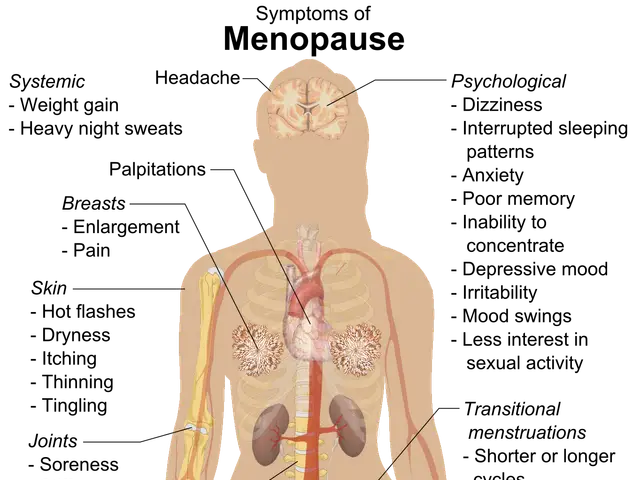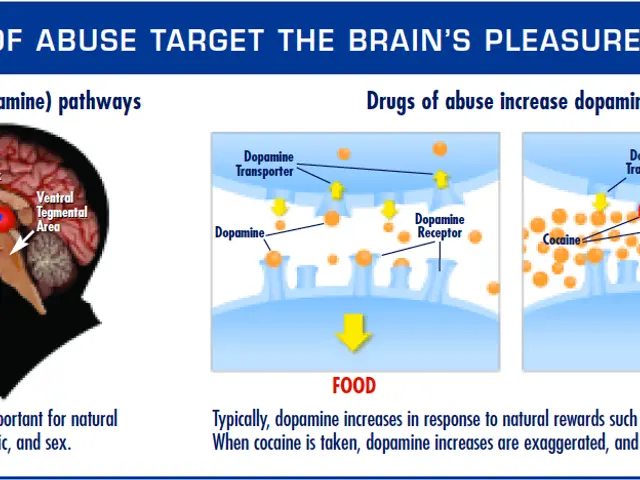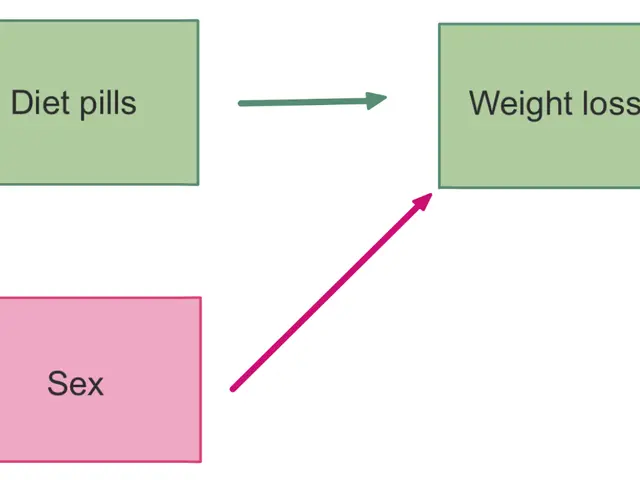Signs, Treatments, and Prevention of Miscarriage: Recognize, Address, and Avoid
In the journey of pregnancy, some complications can arise, two of which are miscarriage and ectopic pregnancy. This article aims to provide a clear understanding of these conditions, their symptoms, and the importance of seeking immediate medical care.
A miscarriage, medically known as a spontaneous abortion, occurs when a developing fetus is lost before the 20th week of pregnancy. Common symptoms include vaginal spotting or bleeding, which may occur with or without pain, dark-colored vaginal discharge, cramping or pain in the abdomen or lower back, passing tissue or clots, loss or sudden decrease in pregnancy symptoms such as nausea, mild to severe back pain that is worse than menstrual cramps, contractions happening every few minutes, and feeling faint or light-headed [2][3].
On the other hand, an ectopic pregnancy is a less common but potentially life-threatening condition where the fertilized egg settles and grows outside the inner lining of the uterus. Symptoms typically include sharp or stabbing pain in the abdomen, pelvis, lower back, shoulder, or neck; vaginal bleeding or spotting, which may be lighter or heavier than a normal period; dizziness or fainting; low blood pressure and signs of shock; missed menstrual period; breast tenderness and upset stomach; and low back pain or pelvic pain [1][5].
It is essential to note that these symptoms can vary and may not always be present. However, if experiencing any of these symptoms, especially severe pain, heavy bleeding, dizziness, or fainting, it is crucial to seek immediate medical care to determine the cause and receive appropriate treatment. Early diagnosis is vital for managing both miscarriage and ectopic pregnancy safely [1][2][5].
Underlying health conditions associated with miscarriage include high blood pressure, coeliac disease, diabetes, kidney disease, lupus, thyroid gland problems, HIV, malaria, rubella, chlamydia, syphilis, being overweight or underweight, and having a low body mass index before pregnancy. Simple lifestyle changes can reduce the risk of miscarriage, such as avoiding smoking, drinking alcohol, and using illicit drugs, eating a healthful diet, maintaining a healthy weight, and avoiding certain infections [6].
In many cases, a miscarriage has no apparent cause. Chromosome problems can cause abnormal development of the fetus, and miscarriages during the first trimester are often related to these abnormalities. Placental problems can also interrupt blood supply from the mother to the baby [4].
If left untreated, ectopic pregnancies can be fatal due to internal bleeding, and the risk of losing the baby is increased. It is crucial to check with a doctor which medications are safe to take during pregnancy, and some medicines should be avoided, such as retinoids, NSAIDs, methotrexate, misoprostol, antidepressants, and caffeine intake should be limited [7].
In conclusion, recognising the symptoms of miscarriage and ectopic pregnancy is crucial for early intervention and treatment. Pregnant women should be aware of these symptoms and seek immediate medical care if they experience any unusual discomfort or bleeding. By understanding these conditions, women can take proactive steps to ensure a healthy pregnancy.
References: [1] American Pregnancy Association. (n.d.). Ectopic Pregnancy. Retrieved from https://americanpregnancy.org/pregnancy-complications/ectopic-pregnancy/ [2] Mayo Clinic. (2021). Miscarriage. Retrieved from https://www.mayoclinic.org/health-info/miscarriage/diagnosis/hrb-20059824 [3] National Health Service (NHS). (2021). Miscarriage. Retrieved from https://www.nhs.uk/conditions/miscarriage/ [4] Royal College of Obstetricians and Gynaecologists. (2020). Early Pregnancy Loss: Information for You. Retrieved from https://www.rcog.org.uk/en/patients/patient-leaflets/early-pregnancy-loss-information-for-you/ [5] University of California San Francisco. (2020). Ectopic Pregnancy. Retrieved from https://www.ucsfhealth.org/conditions/ectopic_pregnancy [6] National Health Service (NHS). (2020). Miscarriage: Causes. Retrieved from https://www.nhs.uk/conditions/miscarriage/causes/ [7] American College of Obstetricians and Gynecologists. (2021). Medications and Your Pregnancy. Retrieved from https://www.acog.org/womens-health/faqs/medications-and-your-pregnancy
- Miscarriage and ectopic pregnancy are complications that may arise during pregnancy, and understanding their symptoms is crucial for early intervention.
- Ectopic pregnancy, a potentially life-threatening condition, happens when a fertilized egg grows outside the uterus.
- Symptoms of ectopic pregnancy can include sharp or stabbing pain, vaginal bleeding or spotting, dizziness, fainting, and missed menstrual period.
- A miscarriage, or spontaneous abortion, occurs before the 20th week of pregnancy and common symptoms include vaginal spotting or bleeding, cramping, passing tissue or clots, and feeling faint or light-headed.
- If experiencing symptoms of either condition, immediate medical care should be sought to determine the cause and receive appropriate treatment.
- Underlying health conditions, such as high blood pressure, coeliac disease, diabetes, and HIV, may increase the risk of miscarriage.
- Lifestyle modifications, like maintaining a healthy weight and avoiding certain infections, can help reduce the risk of miscarriage.
- Chromosome problems and placental issues can cause abnormal development and miscarriage, especially during the first trimester.
- Ectopic pregnancies, if left untreated, can be fatal due to internal bleeding.
- Consult a doctor to determine safe medications during pregnancy, as some should be avoided, such as retinoids, NSAIDs, methotrexate, and antidepressants.
- Caffeine intake should be limited during pregnancy to reduce potential risks.
- Ectopic pregnancies can impact chronic diseases management, like multiple sclerosis, cancer, bipolar disorder, and psoriatic arthritis.
- Therapies and treatments for medical conditions, like atopic dermatitis, hepatitis, and ulcerative colitis, should be customized during pregnancy to minimize risks for the baby.
- Depression, anxiety, and other mental health issues can affect pregnancy outcomes and should be addressed with the help of a healthcare professional.
- Chronic diseases, including respiratory, digestive, eye health, hearing, and cardiovascular conditions, should be well-managed during pregnancy to ensure the health and wellness of both mother and baby.
- Pregnant women should prioritize their sexual health, seeking regular check-ups and STI testing if necessary.
- Autoimmune disorders like HIV, lupus, and rheumatoid arthritis need close monitoring and proper management during pregnancy.
- Skin conditions, like breast cancer, can benefit from early detection and prevention measures.
- Workplace-wellness programs can accommodate pregnant women by providing flexible work schedules, ergonomic equipment, and resources for managing chronic diseases.
- Parenting resources should address the specific needs of parents with chronic diseases and support their transition to parenthood.
- Women's health encompasses reproductive health, mental health, and overall wellness throughout different stages of life, including pregnancy, menopause, and men's health concerns.
- A clear understanding of pregnancy complications and their symptoms can empower women to take proactive steps towards a healthy pregnancy, supporting the entire health-and-wellness journey.







